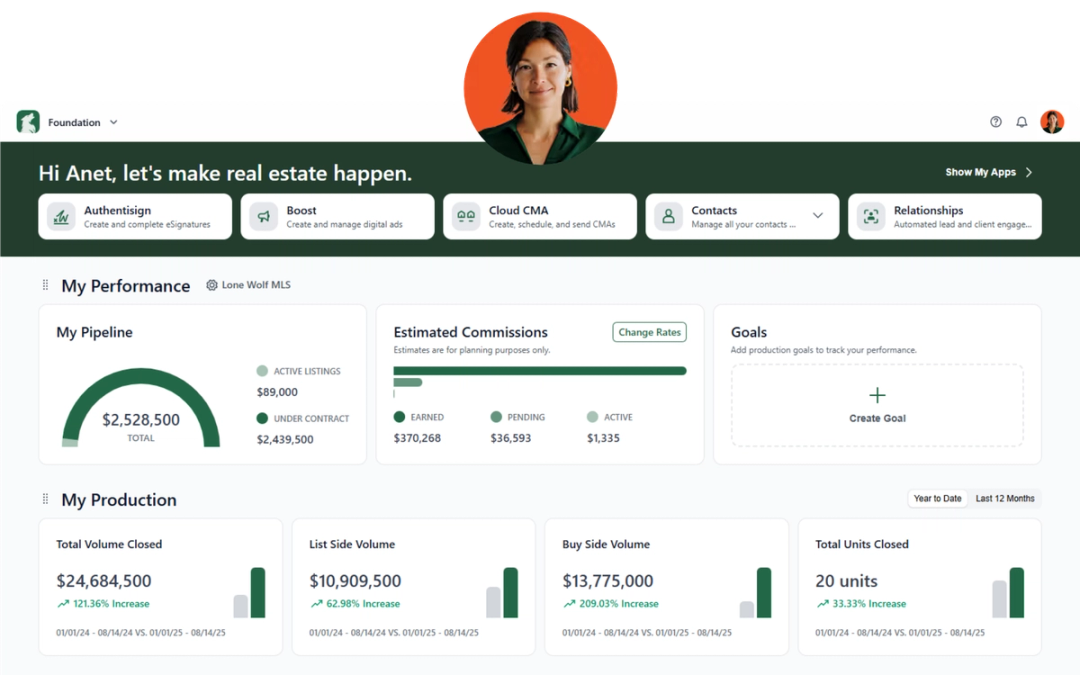
With selling season already well underway, it’s clear that this is a year of questions. What will the rest of the year look like? What exactly is going on right now? What’s a brokerage to do about it?
Despite presenting so many questions, however, this year hasn’t exactly provided a plethora of answers, which can leave brokers feeling uncertain and uneasy about what’s yet to come.
Let’s explore the three most important questions every real estate brokerage should consider right now—and what the answers mean for your business, your agents, and your clients.
What is the market like right now?
Last year, the Canadian Real Estate Association shared insights that throughout the beginning of 2023, the Canadian market was experiencing a 14-year low for home sales.
No matter where you are in North America, headlines like this are hardly unique even now.
It seems like we’re constantly being inundated with bad-news stories. Historical lows for inventory, sky-high inflation, interest rates trying to play catch-up. And in the midst of these stories, real estate brokerages find themselves facing pressure on all sides.
- How do you combat negative narratives in the eyes of your agents—and your clients?
- How do you maintain regular business in irregular circumstances?
- How do you work around market disruptors who have no interest in managing the relationships essential to real estate success?
That’s not to mention concerns a brokerage might run into like keeping agents on board, establishing the sort of brand that can grow in times like this, or even handling consumer expectations for real estate processes.
Which leads us to the second question.
How does the current market impact real estate deals?
Let’s focus on the idea of market disruptors for a minute. Although they make appearances in every industry, real estate has been particularly susceptible to these disruptors in recent years, especially the dreaded sell-it-yourself technology that always stirs up fears of replacing real estate agents.
The frequency of these threats tends to create resentment toward technology as a whole. In fact, it’s an issue we consistently hear about here at Lone Wolf: Brokerages struggle to introduce any technology that might address the other issues they’re facing, like maintaining business and continuing to grow, because agents feel they can’t trust it.
Ultimately, that keeps real estate deals in stasis. They can’t go any faster than they already are, they often can’t meet a consumer’s expectations. They might even lose out to the very system they’re trying to avoid.
The hidden issues of tech resentment
What people tend to forget about when it comes to technology is that it should be here to help, not replace. All of us, at one point or another, have felt fear—or at least concern—that technology would replace our roles in the workforce.
How prevalent was that feeling throughout the Industrial Revolution?
Or when robotics surged in popularity for the manufacturing industry?
Or even when a human, acutely aware of the current trends around artificial intelligence and its growing ability to write, sat down to write out every word in this piece manually?
When we ignore technology’s presence, we lose the ability to explore how it could improve our own work—and that creates the risk that it could take over for us. But when we consider how technology can help, we gain the ability to grow and evolve—which helps us establish our place in a changing world.
And with that in mind…
What does the future look like?
Though none of us have a crystal ball to consult, it’s safe enough to say that the future of real estate looks a lot like a hybrid.
It looks like the people of real estate and technology coming together to achieve things that weren’t possible before.
It looks like software connected in the most logical ways to help agents and brokerages establish themselves firmly in any conditions the market decides to throw at them.
It looks like uncertainty—managed through predictable processes that balance every step of a real estate transaction and give everyone something to trust.
Other resources
See more eBooks, webinars, and blog articles to help you stay ahead with strategies designed for your success.
